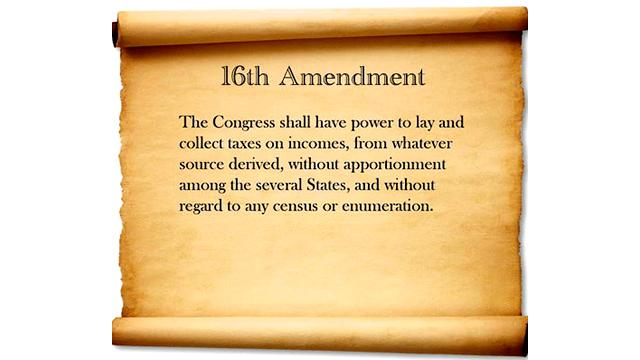Bitcoin Comes to Wall Street by Jeffrey A. Tucker
How do new technologies become part of life experience? They don’t drop from heaven, completed and ready to use. They enter into our world in marginal steps through real-time markets. These markets are full of play, experimentation, success and failure, price discovery, and technological fits and starts. Without this process, technology would remain forever in the lab or the warehouse.
It is this way with cryptocurrency and bitcoin in particular. I’ve been convinced for more than a year that this technology is the future of money and payment systems. It is so obviously better in every sense. But getting from here to there requires a messy process of adoption in real time. The demise of Mt. Gox is no exception.
This is why I was just thrilled to experience two wonderful evenings at the Bitcoin Center in New York City’s financial district. The address is 40 Broad, right on the first floor, right in the heart of Wall Street. It is inspiring just to the see the sign above the door. Bitcoin Center opened only weeks ago, in early February. It’s a beautiful symbol of a coming of age.
The Bitcoin Center sponsors lectures and debates, shows off new technologies for ATMs and mining equipment, and even has a trading pit once a week. I rang the bell for the session last week, following a general lecture on the topic. It was indescribably fun! It’s true that anyone can trade bitcoins anywhere, anytime, but there is just something wonderful about creating an old-world style environment of buying and selling with posted prices on a board. It was my first time to do this on a trading floor and it was just fantastic.
My second night at the Bitcoin Center featured a debate with Andrew Schiff of Euro-Pacific Capital. He is more skeptical of bitcoin because of fears over government intervention, security issues, and also the proliferation of so-called alt-coins.
I too worry about government—governments make a mess of everything—but this is not bitcoin’s problem. It’s a problem of meddlesome bureaucrats. The beautiful thing about bitcoin is that it is designed to persist and thrive even in the face of powerful interests that oppose it. It lives on a distributed network that is controlled by no one in particular so that there is no single point of failure. It can outlast any attempt to control or suppress it.
As for security, here again, this is not an issue for bitcoin but for the builders of tools around the bitcoin ecosphere. It is not for everyone. It is vulnerable to user error, just like email or cell phones in the early days—or the app economy today. I look forward to ever-better and ever-more accessible tools emerging over the coming year.
As for alt-coins such as Litecoin, Dogecoin, and a thousand others, I see them as a sign that competition is coming to the monetary realm after being shut out for a century. We are finally able to observe how money will emerge in an authentic market setting. This is posing serious challenges for theorists and practitioners.
Think of this: One year ago, bitcoin was still just a narrow interest among a techie crowd. There were a few businesses organizing around it, but not that many. The exchange rate to the dollar was about $20 and people were screaming that it was a bubble.
Today, there are thousands of businesses growing up around cryptocurrency. Bitcoin’s price peaked at $1,250, and though it has fallen by half since then, that hasn’t inspired too much hand-wringing. People now understand that volatility is a normal feature of such an emerging and edgy technology.
It’s helpful to think of bitcoin in terms of historical analogies. Consider electricity. In the 1880s, the rich were installing it in their homes. It was rather scary. It seemed dangerous and it probably was. Would it start a fire? Sometimes it did. Was it really an improvement over candles? Some people openly denied it. Anyone taking the risk early on needed to know plenty of technical details about how it worked and how to use it.
Today, we just flip a switch and forget about it. It will be the same with bitcoin. Today everyone is puzzled about how it works. I end up spending most of my talks these days going over technological basics. It’s all a bit mind-blowing because we are not used to thinking in terms of distributed networks, peer-to-peer exchange, cryptography, and the like. It seems like a new world and it is.
Another historical analogy to consider is railroads. From the 1870s to 1900, most of the headlines concerning railroads were about volatile stock prices, graft, stock fraud, malfunctioning trains, crashes, hazards and dangers, and political scandals. Often lost in this blizzard was the big picture: Railroads were changing the world dramatically.
As we follow the continued march of cryptocurrency, we should remember the big picture. Yes, there will be mishaps, evidence of corruption, lost money, ups and downs in price, and messes all around. This is the way markets give birth to new worlds.
It could be that bitcoin is just the beginning. The technological foundations of this monetary system are showing us new ways to distribute other forms of information relevant to markets, such as contracts, insurance, financial derivatives, futures, and asset allocations in companies—all based on the same system of peer-to-peer exchange without having to rely on trusted third parties.
Technology is made by human hands and grows to become part of our lives through human experience. It is a beautiful anarchy that eventually leads to unseen and unpredicted forms of order. A growing economy needs to permit the process to work. To attempt to control it is to shut down the source of its life and creative energy.
What do you think about the future of bitcoin? Check out our debate in this month’s Arena.
ABOUT JEFFREY A. TUCKER
Jeffrey Tucker is a distinguished fellow at FEE, CEO of the startup Liberty.me, and publisher at Laissez Faire Books. He will be speaking at the FEE summer seminar “Making Innovation Possible: The Role of Economics in Scientific Progress.”



